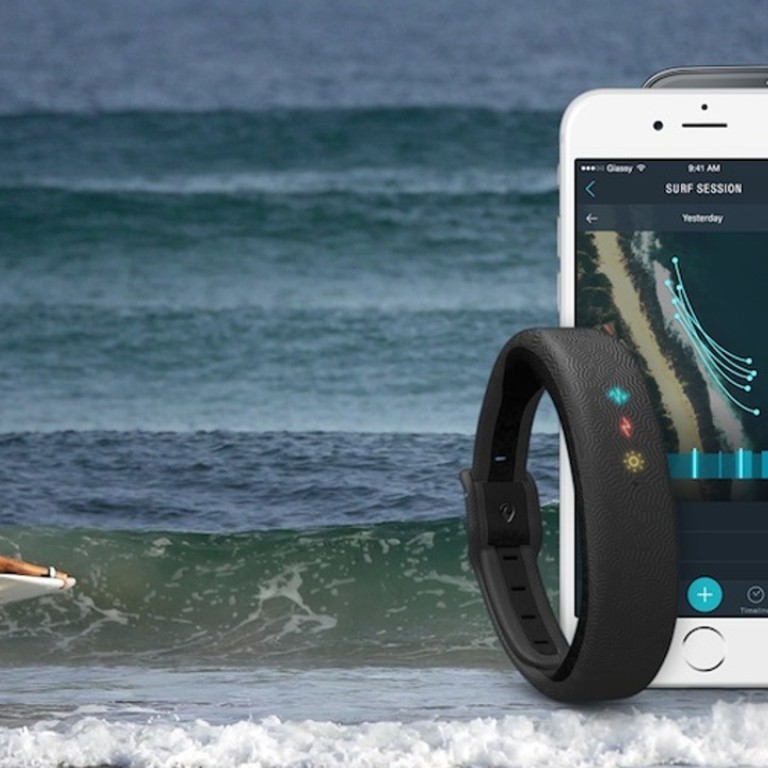
Boom in Internet of Things devices draws more hardware start-ups to Hong Kong as connected gadgets take off
A smart device for air conditioners to help keep pets cool in Hong Kong’s sweltering summer, a wearable metronome and a gadget that bestows on its wearer a personalised sound are among the increasingly colourful catalogue of products being rolled out by local hardware start-ups.
A global boom in connected gadgets has seen a rising number of related hardware start-ups base their operations in Hong Kong to use the city’s laws, financing and logistics as well as its proximity to manufacturers in southern China to get their products onto the market.
One of those firms, Soundbrenner, has developed a wearable metronome to help individual musicians or groups of musicians to stay in rhythm. Founded by two German graduates in mid-2014, Soundbrenner’s staff is split between Hong Kong, Berlin, Montreal and Los Angeles to make the most of what each city can offer.
READ MORE: Surfing the tech wave: From stylus-based 3D printers to barrel-proof wearables, top 5 hardware start-ups in Hong Kong
Co-founder Florian Simmendinger is based in Hong Kong, where the company has joined IoT accelerator Brinc. Simmendinger said the accelerator’s network has eased the process of getting their product to market.
“We worked with the people who have got things into manufacturing for the past 10 or 20 years,” Simmendinger said.
“One of the advantages here is that you can find really experienced know-how for a reasonable price.”
Soundbrenner sold 2,500 Pulse bands through an Indiegogo crowdfunding campaign that raised US$216,678. It is set to ship the gadgets in the next month.
Internet of Things devices, which encompass wearables and smart devices, are proving increasingly popular, with the number of connected devices expected to reach 30 billion by 2020. The global market for IoT is predicted to hit US$1.7 trillion in 2020, up from US$665.8 billion in 2014, with devices taking 31.8 per cent of this total, according to International Data Corporation.
“There’s a massive opportunity for Hong Kong to position itself as the hub and continue to strengthen that foothold by attracting the best founders and enabling ecosystem partners to get involved,” said Brinc founder Manav Gupta.
Gupta said interest in IoT start-ups from investors and the Hong Kong government had grown in the past year. The accelerator, which is designed to guide start-ups to producing their first 10,000 devices, plans to attract more international start-ups to Hong Kong in 2016.
While Brinc focuses on attracting international teams to create products for an international audience, other start-ups in the city have opted to tackle problems specific to Asia Pacific.
READ MORE: Top 5 most popular wearable devices in China
Smart air conditioning device company Ambi Labs was founded to provide a way to remotely control the air temperature for co-founder Julian Lee’s husky Levy during Hong Kong’s hot summers. It has since raised US$114,892 through a Kickstarter crowdfunding campaign and has already shipped 800 units to customers.
The Ambi Climate uses machine learning to discover a person’s temperature preference over seven days as they use an app to report whether they feel too warm, cool or comfortable at least eight times during that period. The device can also be operated remotely when a homeowner is on holiday to keep humidity at bay.
Lee said Hong Kong’s cosmopolitan population, small market size and need to look to external markets make it a good place to develop IoT devices for the Asian market.
“[Western IoT developers] take a very Western approach to the pain points and problems that consumers in the US and Europe experience,” Lee said.
“Within Asia, certainly each country has its unique characteristics but the more upwardly mobile… have an interest in technology and they can afford technology products but their lifestyles are slightly different from the US.”
WATCH: The original 3Doodler kickstarter video promoting the world’s first 3D printing pen
Although originally focused on the Asia Pacific market, where citizens often sweat through muggy summers, Lee said the company has shipped Ambi Climate devices to 37 countries.
While Hong Kong’s location and laws appeal to start-up founders, the city also has a high cost of living and lack of open-minded investors willing to take a risk on hardware start-ups, some say.
Mikel Alonso, a Spanish surfer who is developing a fitness band for surfers called Glassy Zone at Brinc, said that although he believes Hong Kong is the best place to base his business, funding issues may come into play when companies seek further investment.
“The lack of Series A rounds will also be a problem for would-be start-ups in Hong Kong, in addition to the fact that hardware start-ups consume more resources than software ones,” Alonso said.
Fellow Brinc incubatee Aumeo is a matchbox-sized device that, when paired with an app-based hearing test, can tailor sound to an individual’s hearing profile.
While being sold as a consumer product, its technology has been the basis for five articles in peer-reviewed medical journals. It has the potential to provide hearing screenings for young and old people alike, its founder said.
Aumeo founder Paul Lee said the project would not have been possible ten years ago as easy access to inexpensive online advertising and crowdfunding have helped promote and shape the product.
Aumeo’s Indiegogo crowdfunding campaign raised US$287,000 when it sold 3,000 devices at an early price of US$149 apiece.
Lee is hopeful the combination of factors available to hardware start-ups in Hong Kong can support the growth of a healthy industry in the city.
“Hong Kong really is the only place … that takes advantage of the manufacturing and logistics powers of China and the new model - digital marketing and crowd funding,” Lee said.
“Is it going to replace finance? Probably not, but it’s going to be a significant enough force that there will be at least a cottage industry.”

